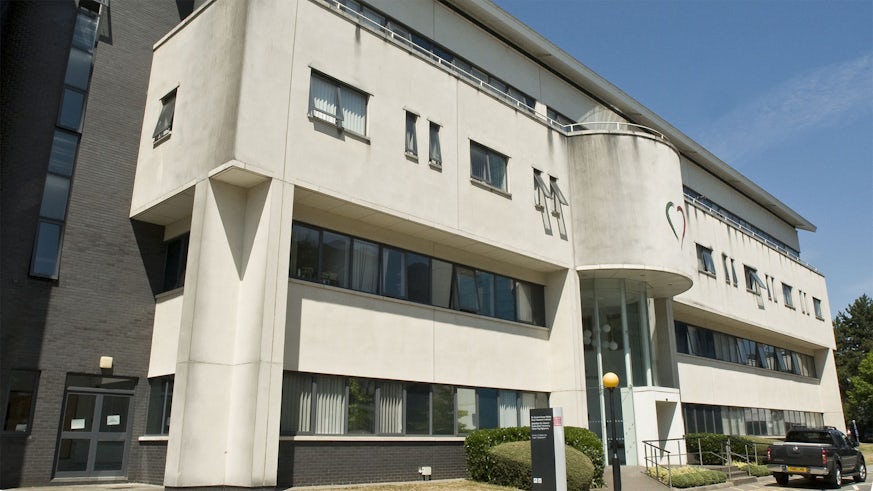The Sir Geraint Evans Cardiovascular Research Building
24 November 2017

The Sir Geraint Evans Wales Heart Research Institute is to extend its already ground-breaking heart research to cover the wider health issues of cardiovascular disease, following extensive consultation with family members of the late Sir Geraint Evans, and leading academics at Cardiff University.
Cardiovascular disease (CVD) is an umbrella term that describes all associated diseases of the heart and circulation. It includes everything from conditions that are diagnosed at birth, or inherited, to developed conditions such as coronary heart disease, atrial fibrillations, heart failure, and stroke.
The biggest cause of death and disability in the UK and in Wales, cardiovascular disease, with its associated conditions, amounts to more than 27% of all deaths, or over 9,000 deaths each year – that’s an average of 25 people each day.
To support the new extended research into cardiovascular disease, the name of the building will also change to ‘The Sir Geraint Evans Cardiovascular Research Building’ to reflect this all important development.
The current Heart Research Institute was championed by the world famous Welsh opera singer, Sir Geraint Evans. Having started off the fundraising drive in 1991, as President, he sadly died in 1992 of a heart attack, but his wife Lady Brenda took up the mantel.
In honour of his memory, the Charity took up Sir Geraint’s name to continue to raise funds for a centre of excellence in heart research - the first of its type in the UK - to be built in Cardiff University and to aid essential research into one of Wales’ biggest killers.
The Institute was supported by Prince Charles, numerous leading figures from all walks of life, and a £500,000 donation from the British Heart Foundation, but essentially this centre of excellence was paid for and gifted to the University by the overwhelming generosity and support of the people of Wales, in the memory of Sir Geraint Evans.
Professor Gary Baxter, Pro Vice-Chancellor of the College of Biomedical and Life Sciences at Cardiff University, said: “The building will remain an active research environment with a clear focus on patient-centred research that can be translated from ‘laboratory bench to patient bedside’ as rapidly as possible.
“We feel that re-naming the building ‘The Sir Geraint Evans Cardiovascular Research Building’ is a positive step forward in order to stay abreast of the health challenges we face not just in Wales but also across the UK, and globally. Cardiovascular disease covers the breadth of research that will be conducted in the building and will provide laboratory space for our many talented researchers.
“Sir Geraint Evans’ memory and the ethos of the building’s origins are held in great esteem within the University and continuing his legacy with new cardiovascular research reflects our immense gratitude for the funding that has already been kindly donated...”
"This funding has enabled a building to be established, vitally important heart research to be accomplished and now pioneering research into cardiovascular disease to be undertaken. We sincerely hope that the public will support this new era of the Sir Geraint Evans Cardiovascular Research Building through their generosity, donations and legacies via the Sir Geraint Evans Fund for Cardiovascular Research."
Huw Evans, son of Sir Geraint Evans, said: “We are delighted that our father’s name is still so strongly associated with cardiovascular research in Cardiff University. This research is as important now as it was when this heart research building was originally given in perpetuity to Cardiff University by the generosity of the people of Wales, to fund research into Wales’ biggest killer, namely heart disease.
“It is perhaps poignant that in this, the twenty fifth year since our father died of a heart attack, that the newly named building, the Sir Geraint Evans Cardiovascular Research Building, will support this new and exciting research and will again become a centre of excellence in the wider field of cardiovascular research and its associated diseases.”



